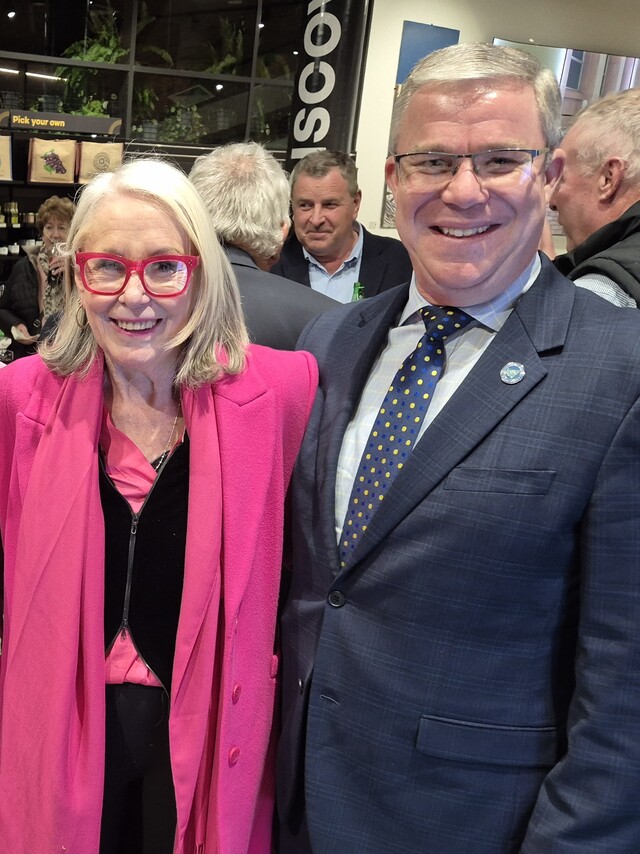The Good Oil by Rod Brown *
Twelve months ago, I was one of four baby boomers lunching in a Canberra restaurant. The conversation turned to the complex issues facing today’s youth. We agreed that kids now have a harder road than our simple upbringing of footy, cricket and wagging Sunday School in Nagambie, Nunawading, Warragul or Ballarat. About the only anti- social thing we did was nicking fruit from neighbours’ trees. Today is a different matter. One of our lunch group, Melbourne based Phil Anstey, spoke of his positive experience in deploying St Kilda AFL footballers as mentors for youth. He wondered about the prospects of developing an Australia wide program using a spectrum of elite athletes, actors and so forth.
Phil explained that it is common for youth to feel that they are not in charge of their lives, and to adopt aggressive and anti-social behavioural traits that further harm their employment prospects. While teachers can serve as role models, this has its limits because the school system is unnecessarily confronting and irrelevant to some youth.
Following our lunch meeting, we made further enquiries that confirmed the following.
- The youth problem usually stems from family management problems, alienation and rebelliousness, and low neighbourhood attachment – this leads to emotional disorders, substance abuse, delinquency, teen pregnancy, early school leaving and violence. Conversely, youth who feel connected to school and family and have positive relationships within the community are less likely to experience these problems. This is confirmed by research.
- Mentors can play a vital role. They help build the self esteem of young people, develop their leadership abilities, and thus have a direct impact on their locus of control. Strong leadership skills place the young person in charge of his or her life.
- Elite athletes are an untapped resource as mentors for Australian youth. They command respect. Youth will listen and respond to them.
- Contrary to popular belief, apart from a few superstars, the bulk of our elite athletes in popular sports – swimming, track and field, cycling, basketball and so forth – are not well paid, and have limited career opportunities once their sporting careers are over. The upshot is that Phil’s company, SportConnect, together with Athlete Development Australia (ADA), have formed a joint venture to develop a program to promote healthy youth development. The emphasis is on teaching life skills, and increasing youths’ connection to community, school and peers. The initiative has attracted financial support from the Commonwealth Department of Family and Community Services, and the Minister, Senator Amanda Vanstone, duly launched the program on 4 December. The program includes the following features.
- Implementation via schools and community sporting clubs over the next four to five years.
- Commencement in three regions, then fanning out.
- A focus on the emotional health areas of self esteem, resilience and connectedness.
- Components – fostering and maintaining effective team work, managing group dynamics such as confidentiality, boundary issues, leadership skills, goal setting and negotiation skills, problem solving, presentation/ facilitation skills, access to employment opportunities.
Athletes such as Kyle van der Kype (athletics), Sarah Ryan (swimming), Eleanor Sharpe and Narelle Fletcher (basketball) have already indicated their wish to be involved. The SportConnect program will provide a career path for such athletes who have a strong interest in social issues and are willing to put something back into the community. The program will expand to include mentors from the arts and entertainment industry – in fact, individuals from any walk of life who have a strong sense of social responsibility and who connect to our youth.
The concept is not new – characters like Rex Hunt, Jim Stynes and Michael Long have been doing similar good things for some years. The aim of SportConnect is to extend and deepen the activity. This will be done by making multiple contacts between the youth and their role models, during training and then through the delivery of projects. This will develop the relationships that can genuinely change attitudes and behaviour. It is also intended to unearth new leaders in the communities concerned, who can then eventually become role models.
However, the Commonwealth funding for the SportConnect program must be matched. This means support is required from socially responsible food and lifestyle companies, utilities (telecommunications, energy, water) and perhaps TV and film production networks. Indeed, the latter might offer up some of their stars to complement the trained facilitators.
The sponsors could be at either a national or regional level.
Local Government has an important role. It can make funding contributions and help engage corporate sponsors within the local community. Support from State agencies is also sought. While the Commonwealth is seeding the program, Senator Vanstone insists that the SportConnect program is about social and community development, not politics – because the surest way to stifle these initiatives is to get into a Commonwealth-State scrap. It should be stressed that the program has considerable flexibility in design and delivery. For example, mentors from your local community can be trained and deployed as part of the program. So whether you are in Kununurra, Gordonvale, Gundagai, Queenstown, Footscray or Murray Bridge, if you have a interest in the above, please contact Phil Anstey on (03) 9646 0311 or myself for further details.
* Rod Brown’s Canberra based consultancy group, Australian Project Developments Pty Ltd, specialises in industry/regional development and government liaison. For further information telephone (02) 6231 7261 or email apd@orac.net.au







